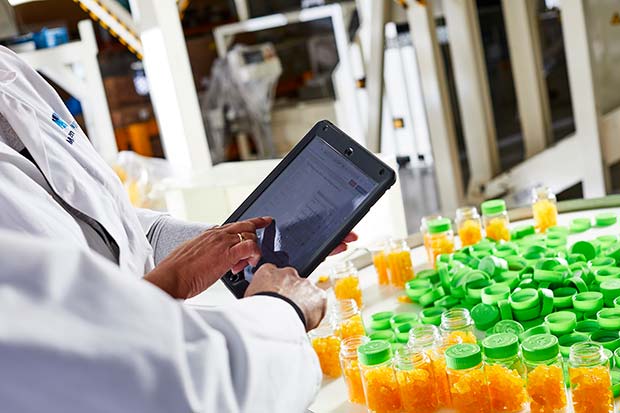By Josephine Coombe, Managing Director of Nulogy in Europe: With more and more FMCG brands relying on their external manufacturing and packaging partners to help bring products to market quickly and cost-effectively, the inability for supply chain ecosystems to collaborate effectively is often a serious limitation.
 Visibility and real-time data are key to resolving this; and it is here that the successful use of technology and digitalisation can deliver for brand owners and their external supply chain partners.
Visibility and real-time data are key to resolving this; and it is here that the successful use of technology and digitalisation can deliver for brand owners and their external supply chain partners.
A multi-enterprise collaboration platform allows brands and their co-pack suppliers to connect and collaborate for faster execution and improved quality in FMCG orders. Working collaboratively, each party is able to track key order milestones and make sure that materials and stocks are available to meet production deadlines.
For brands, this visibility offers additional benefits. Questions such as whether there are correct stock levels in the external supply chain to fulfil orders, where materials are in the system, and the status of orders, are easily answered. With data available in real time, brands are spared from chasing information down from suppliers through inefficient legacy communication channels. This helps to avoid waste through obsolete inventory and removes the need for safety stock, which translate into reduced costs and greater sustainability.
Increasingly, Nulogy’s contract packing customers, 3PLs and FMCG clients globally are seeing the benefits of digitalisation. For co-packers and 3PLs, digitalisation allows them to act as strategic partners – agile arms of innovation to brands – to help differentiate a brand’s product offerings. These include a wide range of services, from creating limited edition packs and special promotions to quickly timed experiments with manufacturing or packing new products and brand variants.
Digitalisation is key to managing this work, which will usually involve a mix of machinery and labour-intensive production lines. Manual processes using spreadsheets and paper-based systems or relying on an ERP software solution not specifically designed for co-manufacturing or packing become things of the past. Instead, cloud-based software enables resources such as labour to be much more effectively tracked, delivering greater accuracy in costings for clients.
Real-time visibility on production performance drive improvements in productivity, while dynamic scheduling and materials planning functionality enable businesses to make quick adjustments to deal with changes in demand, bills of material versions or product substitutes.
Digitalisation of materials and inventory management is also not just about waste. Without effective and fast lot code traceability can be at risk, particularly in the event of product recalls. In a paper-based, spreadsheet or legacy system environment, tracking down at-risk inventory can be a time-consuming, highly manual and error-prone nightmare. And in the event of a full recall, the consumer health, reputational, and financial risks can be very serious. With a digitalised platform that enables network-wide visibility of materials and inventory at the batch and lot code level, traceability is as easy as a click of a button and can be the difference between isolating stock in minutes versus days or even weeks.
A digitally transformed external supply chain can deliver a raft of operational and financial benefits resulting from greater agility. However, one of the greatest benefits is the strengthened relationships between a consumer brand and its external suppliers. By sharing data and working together to fulfil orders, mutual trust is built, and each party across the supply chain wins. Brands can reconfigure their supplier setups to best suit their ever-changing order requirements, while suppliers can demonstrate their flexibility to meet those needs. An “always on” digitally enabled ecosystem is how true operational agility is achieved and one that is becoming essential in today’s world of constant change.




Comments are closed.